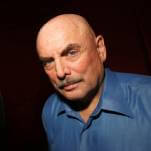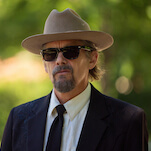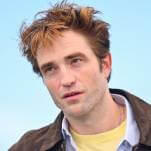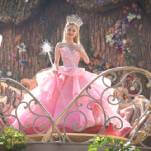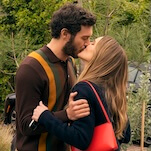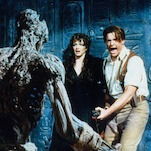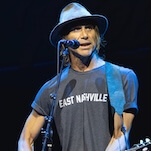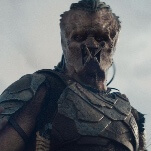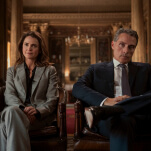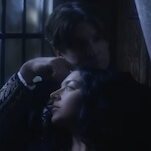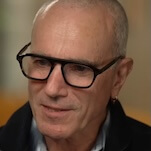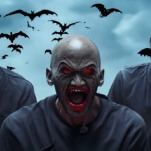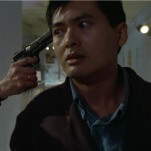Cannes ’14, Day 9: The fest closes with Russian tragedy and showbiz drama
Greetings from far above the Atlantic Ocean. I’m completing this final, slightly abbreviated dispatch during my long flight back to the United States, after nine days of late evenings, early mornings, packed lines, crowded screenings, scenic strolls, wolfed-down baguettes, and as many new movies as I could manage to consume while still finding the time to bring you the scoop on each of them. The clock moves a little differently in the airtight bubble of a film festival. Did my maiden voyage to Cannes really begin just over a week ago? The fest felt both longer and shorter somehow—over in the blink of an eye, but so consuming that, by Friday morning, I felt as though weaving through heavy foot traffic on the Croisette was now a permanent way of life. Non-stop excitement aside, I’m eager to step back into reality.
A few hours ago, the final of the main competition titles screened for the press, and I fulfilled my self-imposed imperative to see the entire lineup. (I’ve written about most of them, punting only on Alice Rohrwacher’s bucolic The Wonders, about a family of Italian beekeepers, as I nodded off a few times in the middle—a common problem at film festivals, and don’t let any critic tell you otherwise.) Of these 18 movies, wildly varying in quality and content, the Dardenne brothers’ tender, episodic Two Days, One Night was easily my favorite. Plenty of my peers share this opinion, but I suspect Jane Campion and her jury will resist handing it the Palme, as the Dardennes have already won twice. (A third would be a precedent.) Winter Sleep, from Turkish auteur Nuri Bilge Ceylan, feels more likely. The film is heady and uncompromising and made in a very European tradition of austere, languid art pictures. It’s also a leap forward in ambition for a Cannes regular, who some have claimed is long overdue.
All of that could also be said, however, for Leviathan (Grade: B), the latest gorgeous bummer from Russian director Andrey Zvyagintsev. The film has earned late-fest raves for its caustic vision of corruption in a post-Soviet seaside town, where a car-shop owner (Alexei Serebryakov) tries to prevent a crooked mayor (Roman Madyanov) from forcing his family out of house and home. As with all of Zvyagintsev’s films, it’s both stunningly shot and deeply downbeat. What distinguishes Leviathan is a much-needed gust of humor, blowing in over the film’s barren backdrops and cutting through the punishing dourness that crippled its creator’s The Banishment. (There’s a very funny moment in which the rat-bastard politician gets his ass handed to him, as well as a sardonic sequence of locals using photos of old national leaders as target practice.)
But setting aside the promising peeks of personality, in both the characters and the filmmaking, this is still a Zvyagintsev joint. The movie marches inexorably toward tragedy, drawing a conclusion that’s both incredibly cynical and a little moth-bitten. The symbolism, too, is pretty heavy-handed, though it’s hard to really complain about breathtaking images of whale skeletons sprawled across windswept beaches. The film could win the Palme, but I wonder if its minor but recognizable resemblance to Ceylan’s body of work might factor against it. If the jury is going to select something of this ilk, won’t they pick the even meatier Winter Sleep? Go big or go home.
Much less likely to scoop up a prize is Olivier Assayas’ talky, meta showbiz drama Clouds Of Sils Maria (Grade: B-), which is no patch on his earlier Irma Vep (1996). Juliette Binoche plays Maria, an aging actress who agrees to appear in a new production of the stage play that, 20 years earlier, launched her career—a twofer about an opportunistic young careerist who seduces, exploits, and abandons her older female superior. The catch is that Maria has now been cast as the desperate boss, opposite a Lindsay Lohan-ish starlet (Chloe Grace-Moretz) playing the role she originated. Rehearsing the play at a secluded cabin in the Alps, Maria begins to resent both the character and the parallels she now shares with her, taking out some of these feelings on the young assistant (Kristen Stewart, surprisingly effective in the role) who runs lines with her. Life imitates art, as it tends to do in movies about rehearsing a show and “the process.”
Real-life echoes abound, especially in the casting: Stewart and Moretz both bring aboard their own celebrity baggage, and there’s something undeniably poignant about seeing Binoche—one of the world’s greatest living actresses—grapple openly with how the industry devalues women of advancing years. The themes are transparent enough that it’s a pity Assayas felt the need to actively, relentlessly underline them, his dialogue dismantling the subtext at every opportunity. Clouds Of Sils Maria is smart, but also a bit too up-its-own-ass for my tastes. And while the Hollywood satire is certainly less cranked-to-11 than what David Cronenberg offered in Maps To The Stars, it’s not much more trenchant. Those unaware that Hollywood is really into superhero movies may disagree. (An excerpt from the Moretz character’s fictional, X-Men-like fantasy franchise is too dopey to even function as shrewd parody.)
